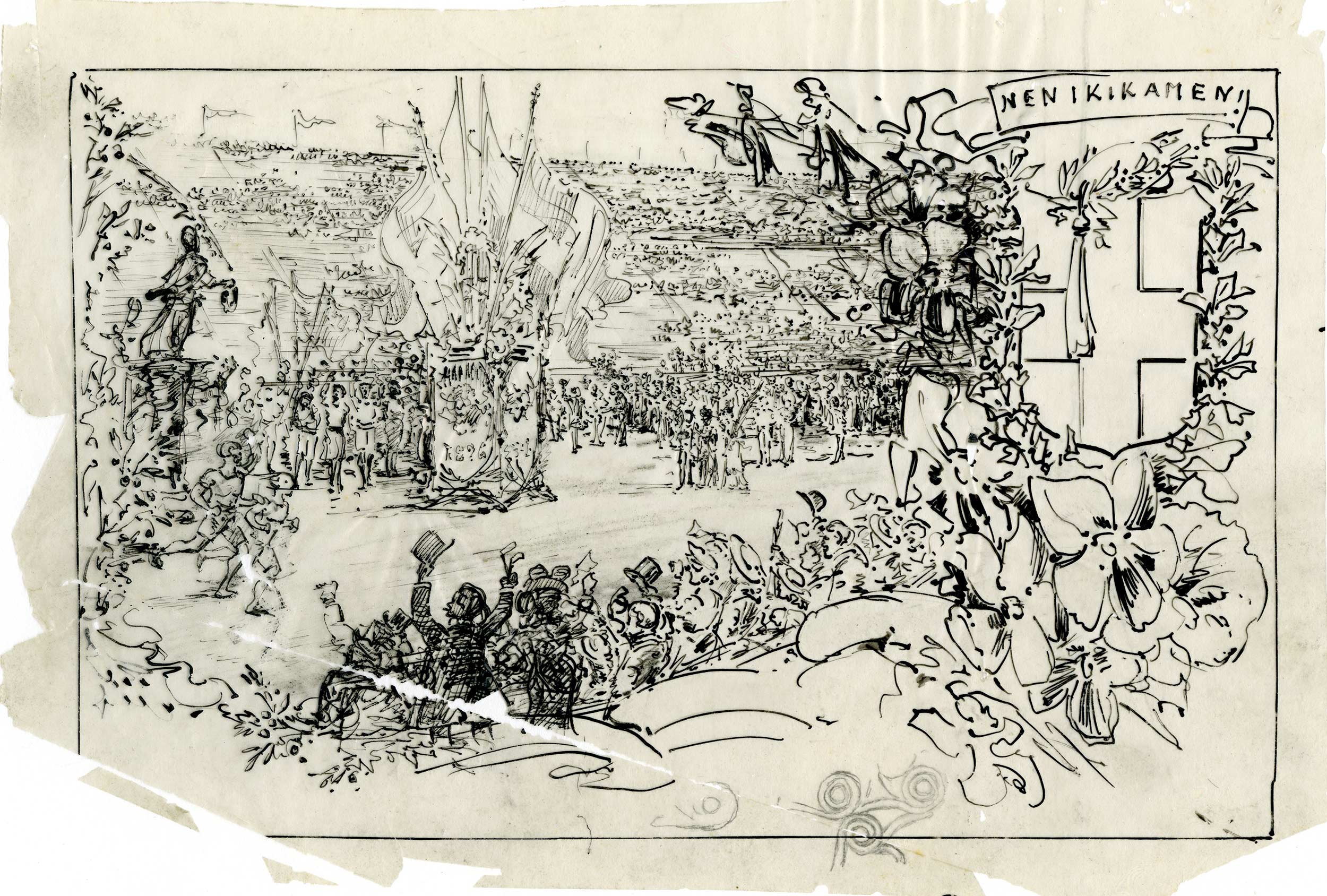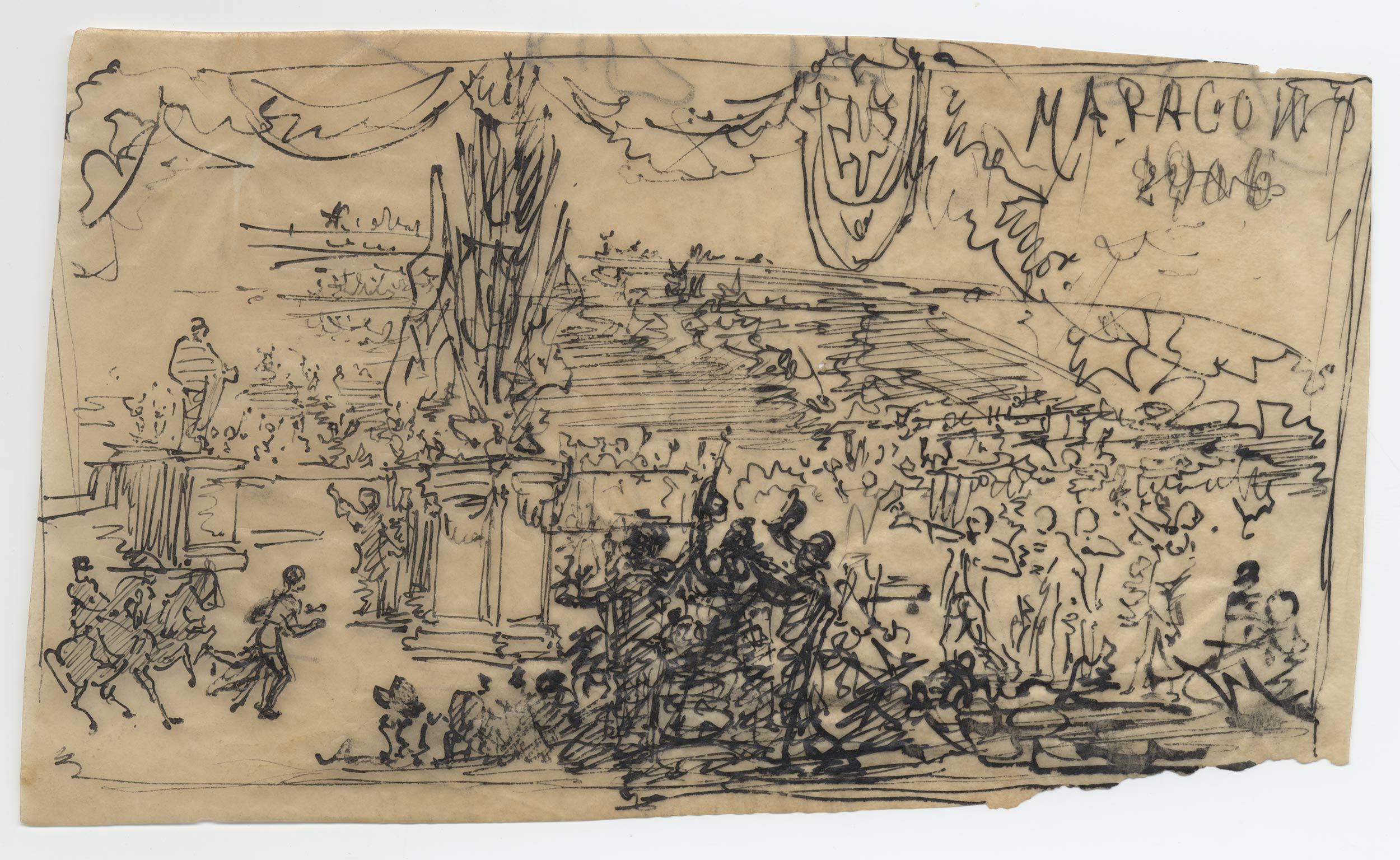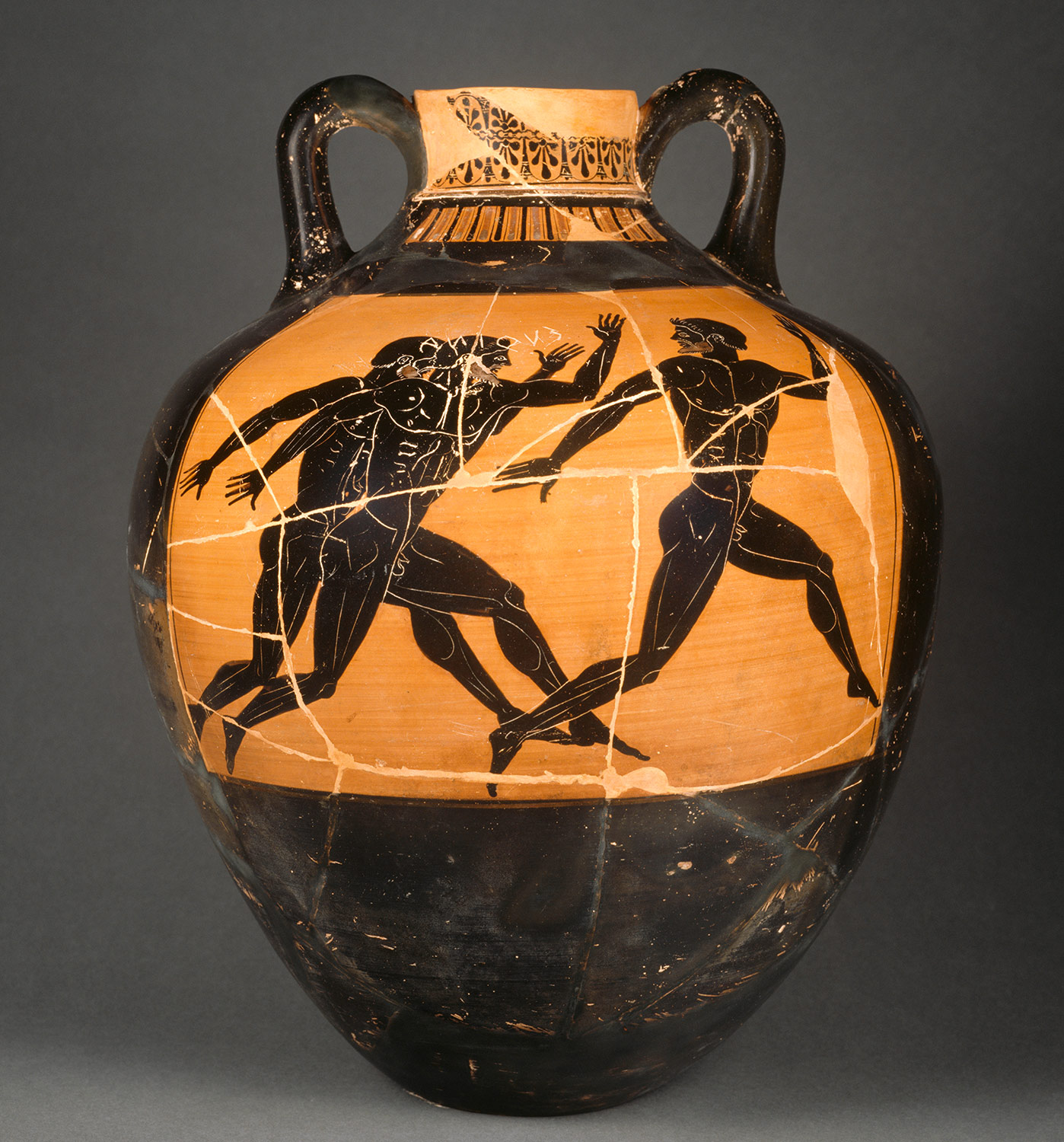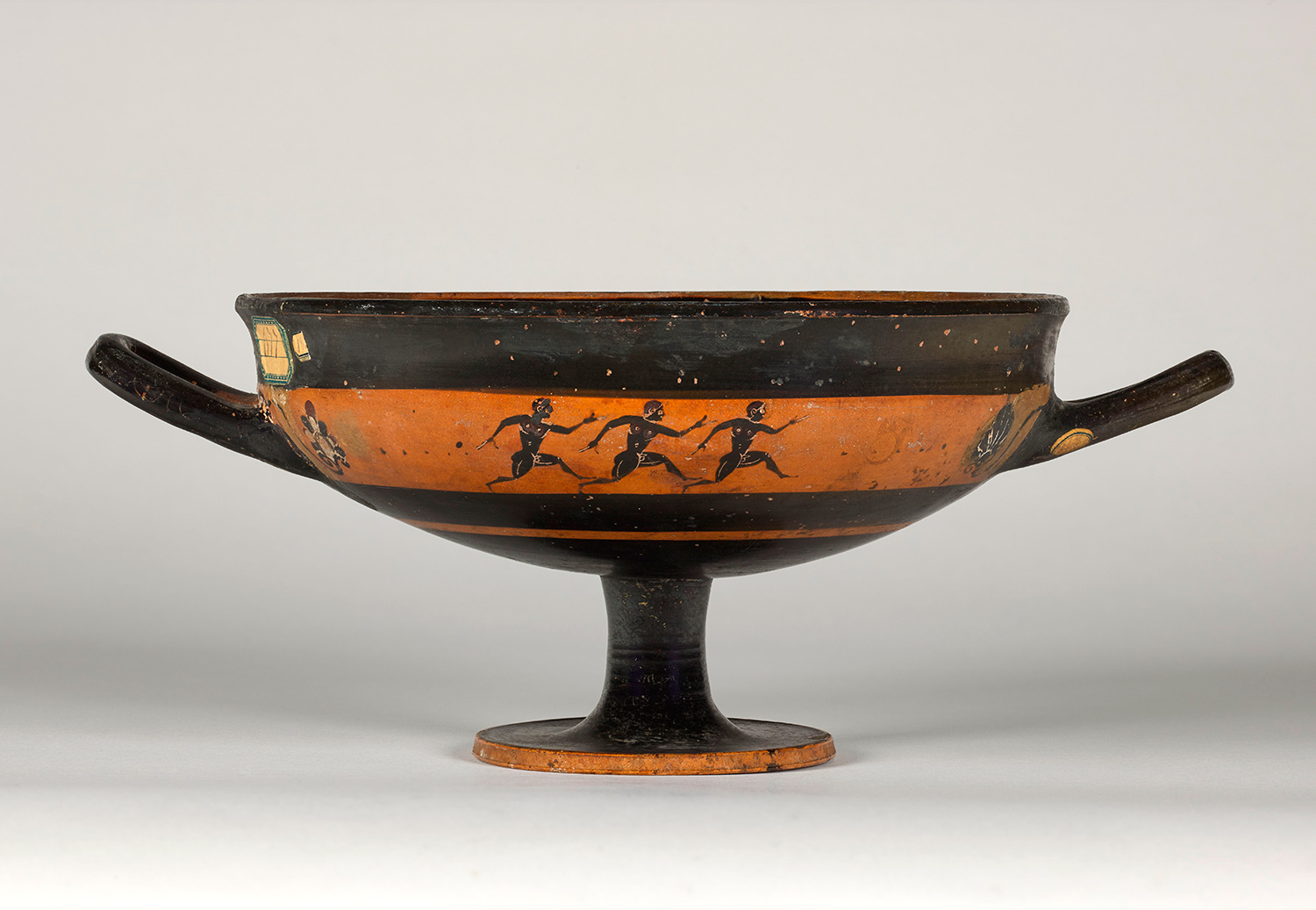'Since you are travelling to Athens, see if it might be possible to organise a race from Marathon to the Pnyx. That would have a flavour of antiquity.'
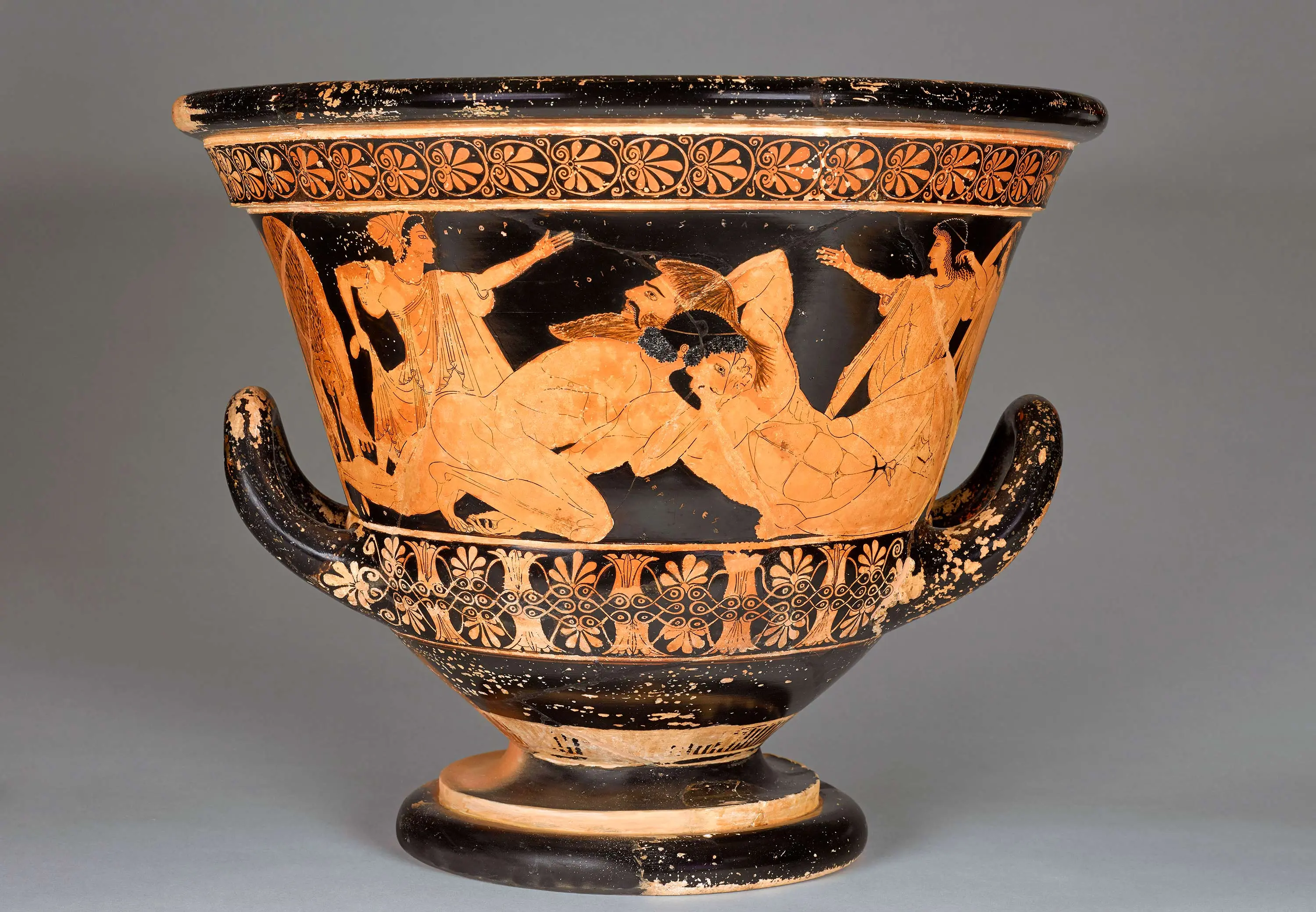
Olympism
24 April – 16 September 2024
The Marathon or the Invention of a New EventÉmile Gilliéron
The Arrival of the Marathon Winner: proof of postcard for the 1906 Olympic Games.
Coloured typographic proof, lithography on paper.
Athens, private collection of Émile Gaston Gilliéron
As a contributor to the iconography of the first Olympic Games, Émile Gilliéron published a series of postcards for the 1906 Athens Mesolympic Games. Here he evokes the winner’s triumphant arrival in the first marathon event, which closed the 1896 Olympic Games, to the cheers of a packed stadium. The text ‘NENIKHKAMEN’, ‘We have won’, refers to the victory of both the runner and the Greeks at Marathon.
A New Event Invented by a French Philologist
The marathon event was invented for the first Olympic Games, in 1896, by philologist Michel Bréal. This professor at the Collège de France was a close friend of Pierre de Coubertin. When the latter organised a conference at the Sorbonne in 1894 to revive the Olympic games, Michel Bréal was the first speaker. That same year, while on holiday in Switzerland, he wrote to his friend:
Michel Bréal was right: this event, at the climax of the Games, was won, to general enthusiasm, by a Greek athlete, Spyridon Louis. The very next year, a marathon took place in Boston, the first of its kind to be unaffiliated with the Olympic Games. A new athletic event was born.
The Commemoration of an Athenian Victory
The marathon race commemorates a famous episode in Athenian history: the victory over the Persians in 490 BC on the coastal plain of Marathon, which ended the first Greco-Persian war. After pushing the Persians back to the sea, the Athenian hoplites and their Plataean allies, led by Miltiades, had to return on the run to Athens to thwart a renewed Persian attack, this time through the port of Phaleron. Planning for the 1896 Olympic Games provided an opportunity to research the route they took in order to organise the first marathon race along it.
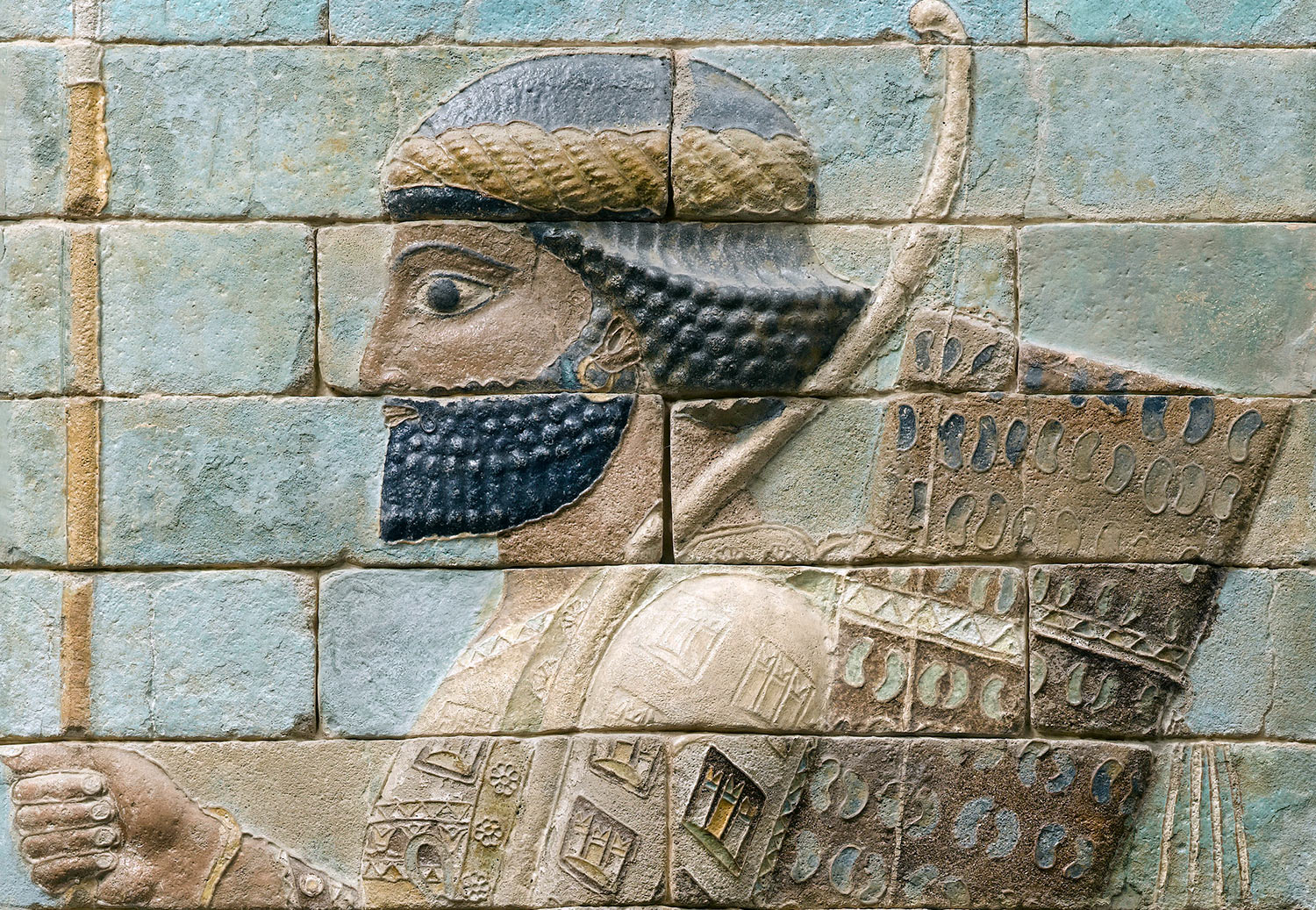
The Foot Race, Supreme Contest of the Ancient Games
The foot race was the supreme contest of the ancient Games. The winner gave his name to the Olympiad. Dedicated to the gods and the sole event of the first Games of antiquity, it would later become the opening event at all competitions. On this vase by the Kleophrades Painter, produced in the early 5th century BC, the runner in the lead looks back to judge his competitors’ progress. The characteristics of the sport are evoked by the runners’ pumping arms and outthrust left leg.
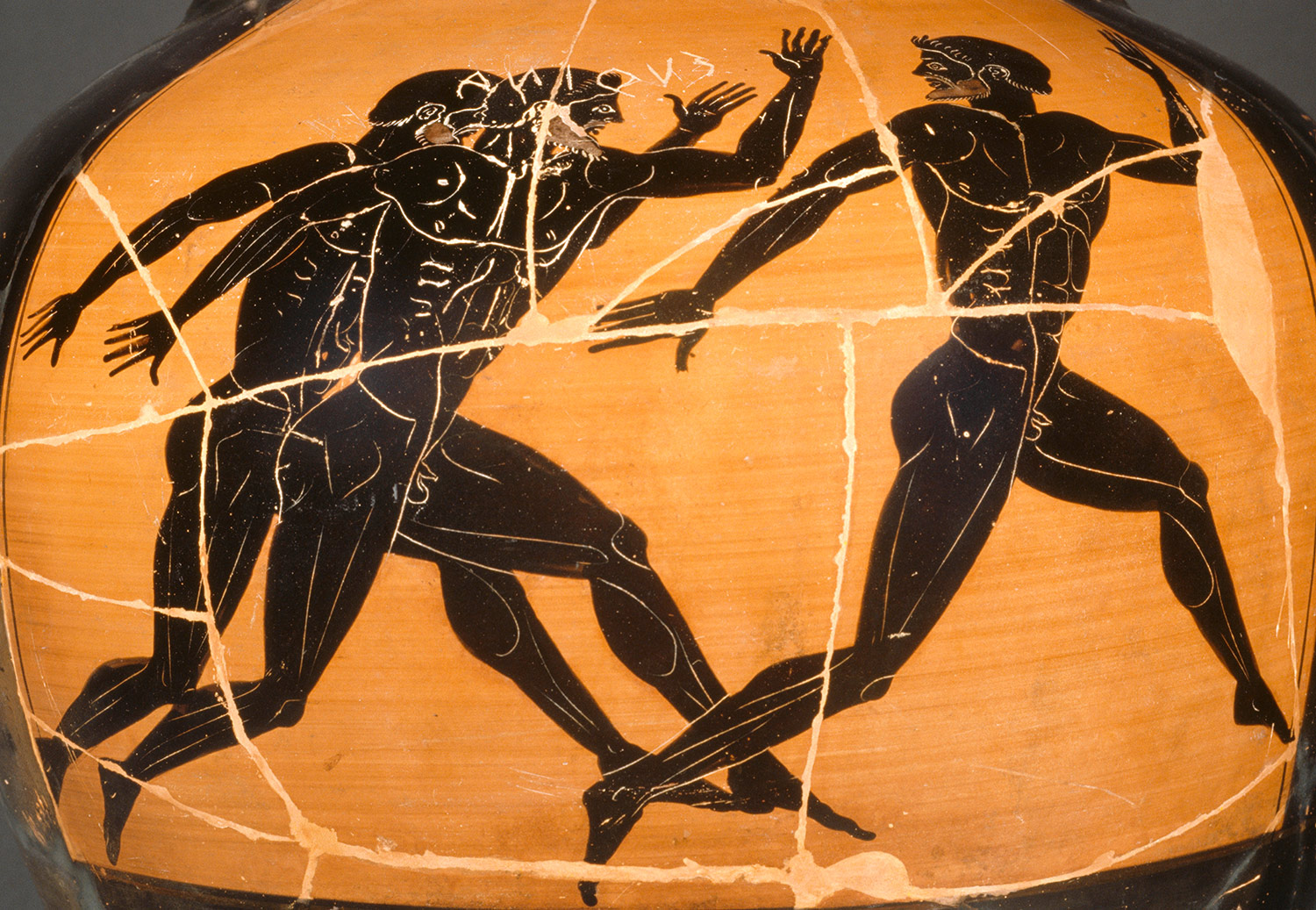
Sélection d'œuvres
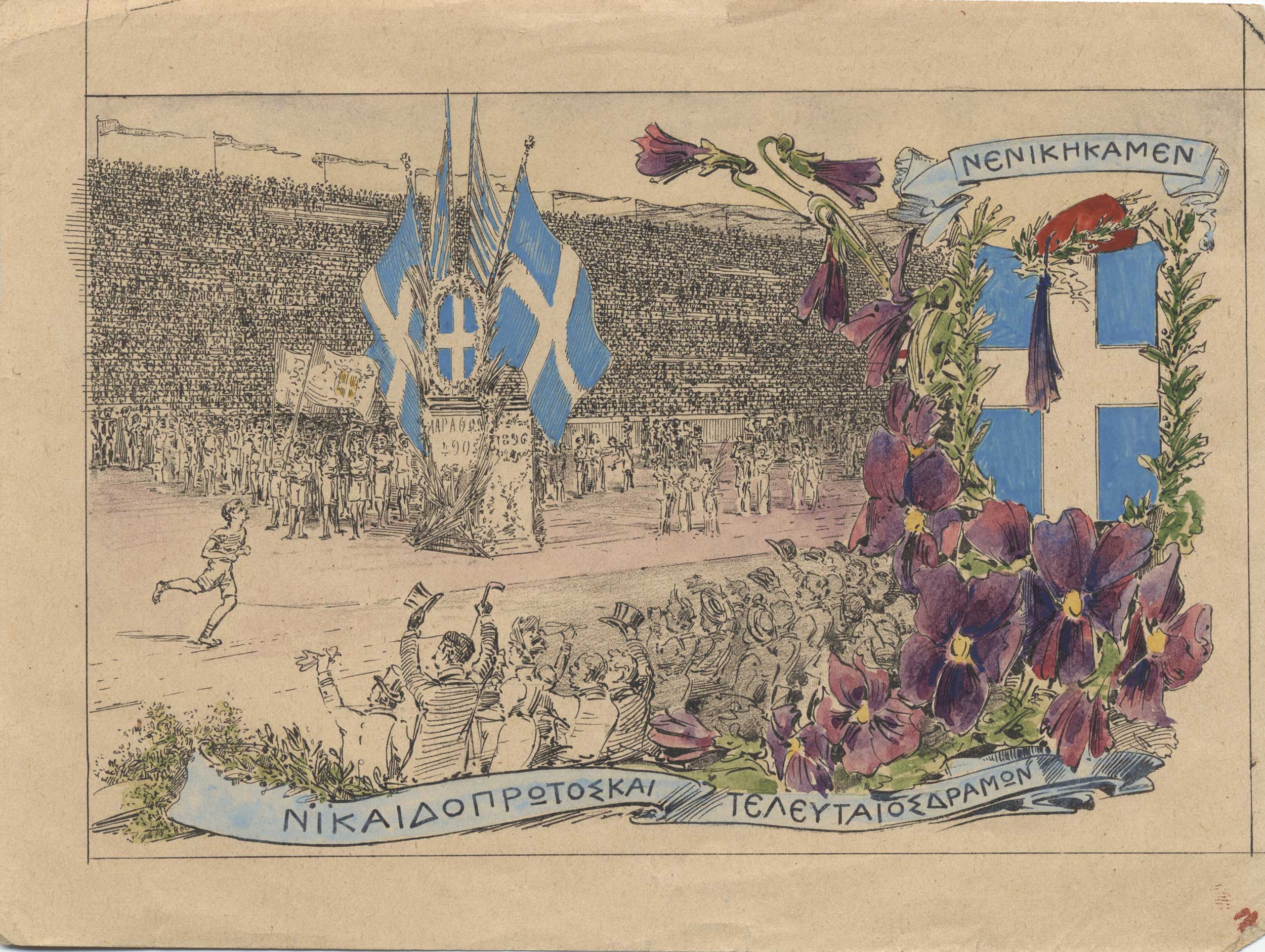
Emile Gilliéron, L’Arrivée du vainqueur de la course de Marathon. Épreuve de carte postale des Jeux Olympique de 1906. Épreuve typographique coloriée, lithographie sur papier. Athènes, collection particulière Émile Gaston Gilliéron
1 sur 6

